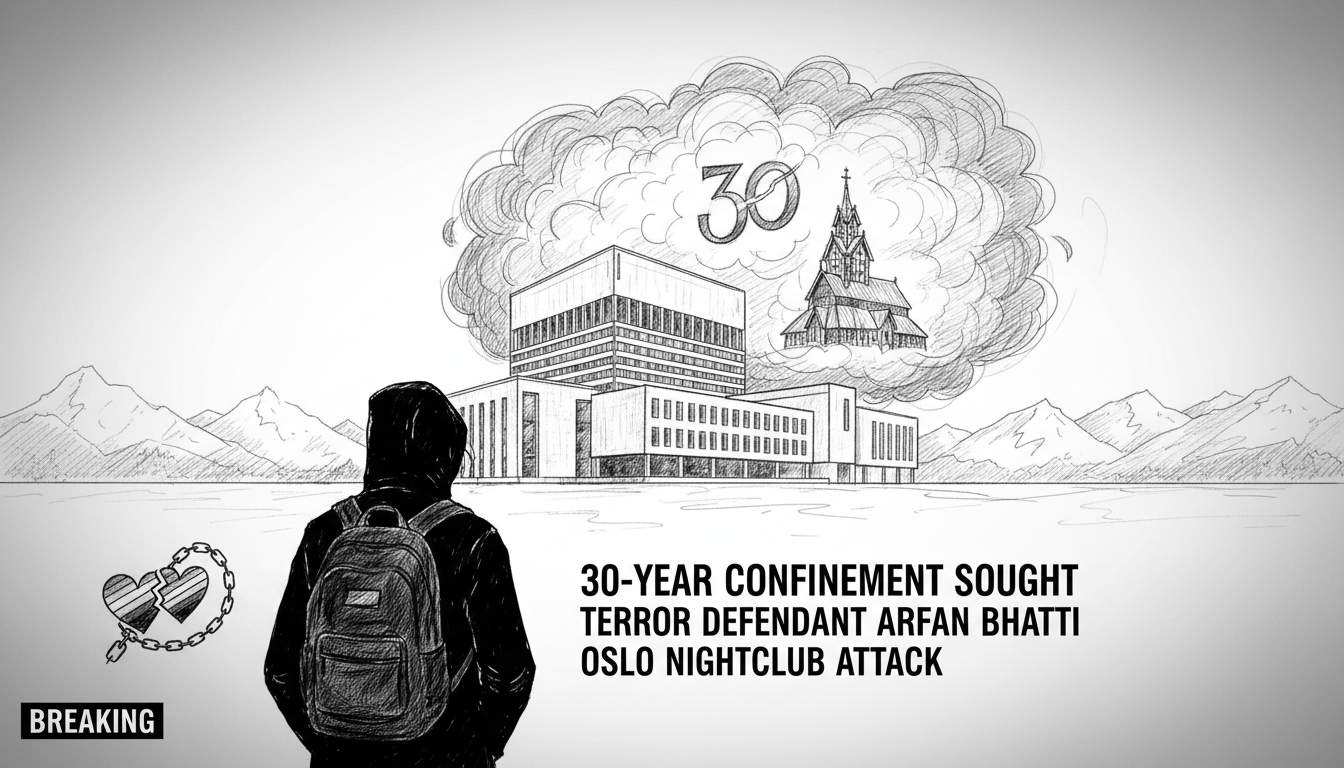Norwegian prosecutors have requested the maximum security confinement sentence for Arfan Bhatti, who faces terrorism charges related to the deadly Oslo LGBTQ nightclub shooting. The prosecution concluded their arguments Thursday in Oslo District Court, describing Bhatti as a man who hates Norwegian values and poses a continuing danger to society.
Prosecutor Aud Kinsarvik Gravås stated there are no mitigating circumstances in Bhatti's case. She emphasized his extensive criminal history and characterized him as a professional violence perpetrator. The prosecution seeks 30 years of forvaring, Norway's strictest preventive detention measure, with a minimum serving period of 20 years.
Bhatti stands accused of complicity in the terrorist attack targeting London Pub and Per på Hjørnet, two popular LGBTQ venues in central Oslo. Three years ago, Zaniar Matapour shot and killed two men at these locations while injuring several others. Matapour received a 30-year forvaring sentence last year, with the court identifying the Pride celebration as his intended target.
The prosecution alleges Bhatti provided psychological support and planning advice for the attack. They claim he facilitated communication of a bayah, a loyalty oath, to the Islamic State terrorist organization. Prosecutors also assert Bhatti assisted in obtaining the weapons Matapour used during the shooting.
Prosecutor Sturla Henriksbø described the case as involving a man who manipulated a vulnerable individual to carry out terrorism. He noted the attack traumatized Norway's LGBTQ community and created widespread fear across the country. The incident represents one of Norway's most serious terrorist cases since the 2011 Utøya attacks.
Bhatti and his defense team maintain his innocence regarding the terrorism charges. They acknowledge he doesn't accept LGBTQ individuals but deny he hates or wishes to harm them. The defense argues Bhatti merely attempted to help his friend Matapour during a difficult child custody dispute. They characterize the IS loyalty oath transmission as a friendly gesture without terrorist intent.
Norway's forvaring system differs significantly from standard prison sentences. This preventive detention allows indefinite confinement of dangerous offenders beyond their original sentence if they remain considered a threat to society. The legal mechanism reflects Norway's balanced approach to both rehabilitation and public safety.
The trial began in early September and will conclude Friday with closing arguments from Bhatti's defense team. Both prosecution and victim assistance lawyers will present their final summaries before the case goes to judgment. A verdict is expected early in the new year.
This case tests Norway's legal system in addressing complex terrorism cases where direct participation is difficult to prove. The outcome will influence how Norwegian courts handle similar cases involving ideological motivation and indirect involvement in terrorist acts. The proceedings have drawn international attention to Norway's approach to counterterrorism and LGBTQ safety.
Norwegian authorities continue to prioritize protection of vulnerable communities while balancing legal principles. The Bhatti case represents ongoing challenges European nations face in preventing radicalization and addressing hate-motivated violence. The final judgment will signal how Norway's justice system weighs psychological complicity in terrorism cases.

